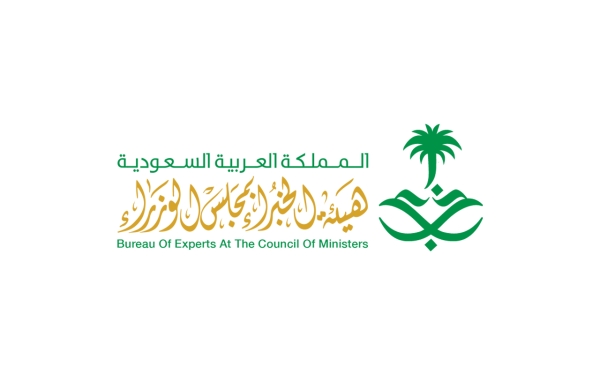

The Child Protection Law in the Kingdom of Saudi Arabia is a legal framework established to protect children in the Kingdom. It outlines the responsibilities toward children and ensures their rights. Initially issued in 2014, the law comprises twenty-six articles, some of which have been amended over time.
Goals of the Child Protection Law
The Child Protection Law aims to protect children against all forms of abuse and neglect, and their manifestations. It guarantees the rights of abused or neglected children by providing them with necessary care, and raises awareness of children’s rights, especially those related to protection against child abuse and neglect.
Cases of abuse and neglect as per the Child Protection Law
The Child Protection Law specifies the cases of child abuse and neglect as: Leaving a child without family support; failing to obtain or maintain a child’s identification documents, or withholding the same; failing to complete a child’s compulsory vaccinations; causing interruption to a child’s education; exposing a child to unsafe environments; maltreatment; sexually harassing a child or exposing him to sexual exploitation; exploiting a child financially or forcing him into criminal activities or beggary; using abusive language to humiliate or degrade a child; exposing a child to obscene and criminal scenes or other scenes inappropriate for his age; discriminating against children for racial, social, or economic reasons; explicitly and continuously failing to raise and care for a child; allowing a child under the legal driving age to drive a vehicle; and any act that may threaten the safety or physical or psychological well-being of a child.
Cases of child delinquency as per the Child Protection Law
The Child Protection Law considers a child at risk of delinquency in any of the following cases: Practicing beggary or any illicit act; rebelling against the control of a parent or caretaker; regularly escaping from home or from any rehabilitation or housing facilities; regularly sleeping in places not designated for sleeping or lodging; regularly visiting socially or morally suspicious places, or places not appropriate for his age, or mingling with homeless or corrupt people, carrying out activities related to prostitution, gambling, drugs, or the like, or providing services to people engaged in such activities.
A child’s right to protection
As per Article Five of the Child Protection Law, a child always has the priority of protection, care, and relief. Article Six stipulates that a child has the right to protection against all forms of abuse or neglect.
Alternative care options for children
The Child Protection Law stipulates that a child living in an inappropriate family environment where he is exposed to abuse or neglect has the right to alternative care through a foster family that provides custody and care or government, non-government, or charitable institutions that provide social care when no foster family is available.
Prohibitions in the Child Protection Law
The Child Protection Law lists prohibitions that include: employing a child under the age of fifteen, assigning a child to perform activities that may be harmful to his safety or physical or psychological health, or using a child in military activities or armed conflicts. Other prohibitions include exploiting the child sexually, exposing him to any form of sexual exploitation, or subjecting him to trafficking for purposes of criminal activities or beggary.
As per the law, a child may not be employed in places where narcotics or psychotropic substances are produced or traded. It is prohibited to sell tobacco, tobacco derivatives, and any harmful substances to children. Children may not be used in purchasing, selling, or promoting such substances, nor used in the production sites. Importing and selling children toys or candies resembling cigarettes or any other smoking tools is also prohibited. Moreover, displaying any scenes that encourage children to smoke, and smoking in the presence of children is prohibited.
It is prohibited to produce, publish, display, trade, and possess any printed, visual, or audio works targeting children and inciting them to engage in any behavior contrary to the provisions of Sharia, public order, public decency, or works that may encourage delinquency. Participation of children in sports, recreational activities, or competitions that may endanger their safety or health, as well as any medical intervention or procedure on a fetus, are prohibited.
Parental responsibility as per the Child Protection Law
The law considers the child’s parents or his caretaker responsible for raising the child, guaranteeing his rights, providing adequate care, and protecting him against abuse or neglect. As per the law, the relevant entities should take necessary measures to ensure the commitment of the parents - or the caretaker - to their responsibility towards the child, safeguard his rights, and protect him against abuse or neglect. In case the parents are separated, the child has the right to visit or contact either of them, unless the interest of the child requires otherwise.
Reporting in the Child Protection Law
As per the Child Protection Law, any person who becomes aware of a case of abuse or neglect must promptly report the same to the competent entities. The latter must facilitate the reporting of cases of abuse or neglect, especially if made by the child.
Penalties as per the Child Protection Law
Under the Child Protection Law, anyone who commits an act of abuse that constitutes a crime is subject to imprisonment for up to two years, a fine of SAR100,000, or one of these penalties. The court may also impose an alternative punishment in place of imprisonment.
If the abuse is inflicted upon a person with a disability, occurs in a workplace, educational institution, care facility, or place of worship, is committed by someone responsible for enforcing the Child Protection Law, involves the use of a weapon, or includes multiple acts of harm in a single incident, the punishment increases to imprisonment for two to five years and a fine ranging from SAR100,000 to SAR500,000. In cases of repeat offenses, the penalty is doubled.
Related quizzes
Related articles

